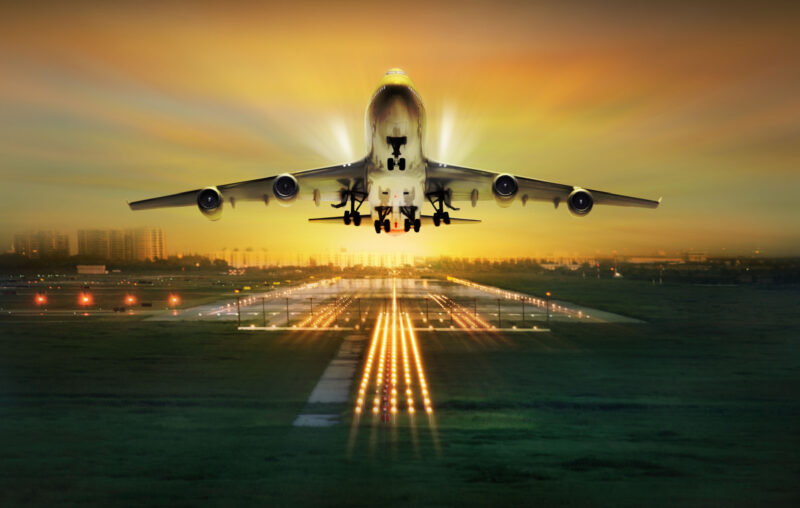


An annoying post-pandemic reality is that “public health” policies disrupted supply chains and services that worsened a trend of rising prices that were going up anyway due to expansionary policies pursued by the Federal Reserve. While there has been a retreat from sky-high prices of agricultural commodities like meat, eggs, and milk, airline ticket prices remain stubbornly high, despite some recent give back.
Given surging airline ticket prices, it is not surprising that customers search for ways to minimize the financial pain of flying that accompanies the erosion of creature comforts while flying and add-on pricing when booking. One such strategy involves searching for “hidden city” opportunities that involve buying a ticket with an interim connection, with the ticket holder’s disembarking at the first stop rather than going onto the final destination of the booking.
One company, Skiplagged.com, reveals such pricing anomalies that are found in the ticketing of most airlines, books the ticket in the passenger’s name, and then charges a service fee. While not completing a ticketed journey is not illegal, it violates the published contract of carriage of most airlines operating in the USA that very few, if any, customers have ever bothered to read.
In all events, it’s strictly a civil contract matter that does not involve fraud. A breach of contract is not unlawful, per se, but it may trigger liability for damages caused by the breach. In fact, it might be decided that Skiplagged.com is exercising a First Amendment right!
There are some restrictions and some risks with using this strategy that are clearly spelled out on various websites. It only works without checked luggage, and it is possible that an airline could demand the regular fare, remove customers from their frequent flier programs, deny them access to flying with the airline, and in the extreme, initiate legal action.
Perhaps the worst outcome for airlines is that a seat on an on-bound flight that was paid for, under its own terms, will remain empty. But what is most likely is that the airline will consider the person a no-show and give the seat to someone else on standby, functionally selling the seat twice.
Feeling aggrieved from reactions to its own ticketing arrangements, United Airlines filed a complaint against Skiplagged.com which was dismissed, as it was filed in Chicago but the owner or Skiplagged.com resided in New York. This was followed by Southwest Airlines undertaking legal action that ended in a confidential settlement, while more recently, American Airlines filed a complaint against Skiplagged.com in federal court.
The complaint by American Airlines is that Skiplagged.com sells tickets for their flights, but is not an authorized ticketing agent, and its pricing involves deception that would not occur if tickets are purchased directly from American. In turn, the request to enjoin Skiplagged.com would compel it to cease selling tickets for travel on American Airlines, forfeit any proceeds from sales of tickets on American’s flights, and pay other damages.
An examination of American Airlines’ filing reveals some disingenuous claims, including that Skiplagged.com infringes their copyright by using American’s logo, something certainly ignored in many other instances. Second, it is disingenuous to suggest that Skiplagged.com can exploit airline travelers by selling a ticket with fees that might exceeds published airfares. As it is, American Airlines is able to set high prices for travel to cities where it has few or no competitors.
Judging this issue from the perspective of consumers reveals that purchasing a “hidden city” ticket can be interpreted as the discovery of something akin to an arbitrage opportunity. As it is, hidden-city opportunities emerge when there are significant differences in the price elasticity of demand relating to certain itineraries with stopovers.
From a game theoretic point of view, airlines assume naivete on the part of their customers, but alert customers react to published prices by seeking best alternatives. In turn, if airlines notice that too many passengers benefit from hidden-city opportunities, they could react by eliminating those opportunities.
If they do not undertake such steps, it is likely that the presumed negative impact of the hidden-city ticketing practice on revenues is not significant enough to warrant a correction. The suggestion is that this reaction is unlikely to lead to substantial net gains in revenue over what is earned when passengers take advantage of hidden-city opportunities.
American Airlines insists that it is taking these steps on behalf of customers. But if they and their rivals were truly interested in benefiting customers, they would resist the imposition of additional taxes, fees, surcharges and the like by governments or publicly-owned airports that constitute a significant proportion of the amount paid for air tickets, especially for international travel.




